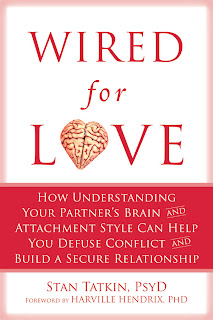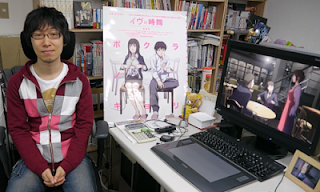As I mentioned in previous posts, I've started a chess learning program with a professional, so I can increase my understanding of the game. I was tired of watching
Dennis Monokroussos' videos and understanding little of them. Why was he able to breeze through openings and only start explaining from move 20 or so? Why are the chess masters that I watch on videos able to say "this cannot be taken because of..." followed by a four move scheme that makes obvious the mistake, but that I couldn't see it?
And so I got this Romanian dude,
Catalin Carmaciu, as an instructor. He may be a bit off putting at first, as it seems he is willing to teach you for free and show you everything he knows, give you any material you ask for and even take time to analyse your games, with any sort of payment as your choice. So, if you don't like open generous guys who are also very smart, I don't recommend him. Otherwise, he is great! His
chess site is in Romanian. Anyway, he looked at the deplorable state of my chess understanding and said "What do you want to do? Win games or learn to be better?" I said I wanted both, of course, as any decent
Neo who would swallow both pills. Of course, it is not easy. You might want to ask about the difference between the two. Isn't it obvious that if you play the game better you will also win more games? What kind of choice is that? And the answer is that for winning games you acquire a repertoire of openings and defences which you learn and exercise repeatedly, while for playing better you read and exercise tactics and strategy books.
My first reaction was disappointment. Here there was this brilliant chess player telling me I had to mechanically learn a series of openings, while I wanted to understand the concept of chess as a whole. But I was wrong to feel that way. You see, since then we've decided on four openings: two defences for standard White openings (e4 and d4) and two replies to defences by Black to my opening with e4 (e5 and c5). While at first it seems you learn some moves in a mechanical way and your only advantage is previous knowledge of a situation that you set up, the reality of it is that you choose the setup and for each you have a long term plan! In the middle game and end game you have a clear vision of what you want, where the attack goes, where to hinder the enemy's movements and what are the triggers for each. It would have been easy to say "for any possible game, you must make a strategic plan before you play", but unless you know what you are doing, that plan would suck. So, while playing these apparently memorized openings, I've developed a practice and an understanding of strategic planning in chess. I have also found answers to other, less common, openings. For example White might move Nf3, but that prohibits me playing e5, so I go with the d5 plan which was originally designed to stop White's d4. And behold, White then plays d4, transposing into a standard d4 opening.
Wait a minute, you jump, but you said the other "learning branch" was the one where you learned tactics and strategy! It is true: strategic thinking is exercised in both situations, only the first is somehow more adult: you learn by doing. Oh, I do have some tactics books that I am looking through and some general strategy books that are supposed to be awesome, but until I find the time and disposition to focus on them and read carefully and understand what is written there, I have the option of playing chess and learning as I go.
Another thing about getting a chess instructor is that he isn't doing much. There is no magical method that he can wield that improves your chess. Instead he
instructs you on what is good to do and you must do it. The effort is yours. The bonus comes from his filtering the chess materials so you get the ones that actually help you. The rest is up to you. After a week of playing, he may look at your chess games and quickly tell you where you went wrong, but they have to be your games.
One thing that my instructor is adamant about is not to use chess engines to analyse your games. That's right! He is telling a computer programmer to not use computer programs for chess. I know, a bit off putting, but he finally convinced me completely when he said that after a (simulated) rating of 2000 ELO, the computers don't move anything like a human. As a 2500 player himself, he cannot prepare for chess championships or games with other players by playing with a computer. His method of analysis is personal: take your game, think of what you thought when you made the moves, see what went wrong with your plans, see what better moves
you could have done. It makes sense, after all, to not use computer programs to analyse your strategic plans, since they don't have any.
So, in order to summarize, my solution for learning to play better chess is to find the opening repertoire that you want to use for most chess games. You don't do that in order to trap the other into little known situations, as I did for a while, but in order to set up a game where you are aware of the strategic plans that you and your opponent are prone to use. In the end the order of the moves might be different, the situation may change one way or another, but as long as you follow
the plan, you should be OK.

 Meet my new puppy dog, Tyrion! The name is, of course, taken from
Meet my new puppy dog, Tyrion! The name is, of course, taken from  Ano Hi Mita Hana no Namae o Bokutachi wa Mada Shiranai (lit: We Still Don't Know the Name of the Flower We Saw That Day) has only 11 episodes and the last episode finishes up the story completely, so it wasn't something larger that just got cancelled. Better known as "Anohana: The Flower We Saw That Day", it is the story of very close childhood friends that pass through a deep trauma when one of them dies in an accident. A few years later, they all have drifted apart and each of them blames him or herself for the way things ended up. And here comes the ghost of the dead girl Menma, showing itself to only one of the group and asking him to fulfil her final wish so she can get to Heaven. The five friends get together to fulfil that wish, even if no one, including Menma, remember what it was.
Ano Hi Mita Hana no Namae o Bokutachi wa Mada Shiranai (lit: We Still Don't Know the Name of the Flower We Saw That Day) has only 11 episodes and the last episode finishes up the story completely, so it wasn't something larger that just got cancelled. Better known as "Anohana: The Flower We Saw That Day", it is the story of very close childhood friends that pass through a deep trauma when one of them dies in an accident. A few years later, they all have drifted apart and each of them blames him or herself for the way things ended up. And here comes the ghost of the dead girl Menma, showing itself to only one of the group and asking him to fulfil her final wish so she can get to Heaven. The five friends get together to fulfil that wish, even if no one, including Menma, remember what it was.



